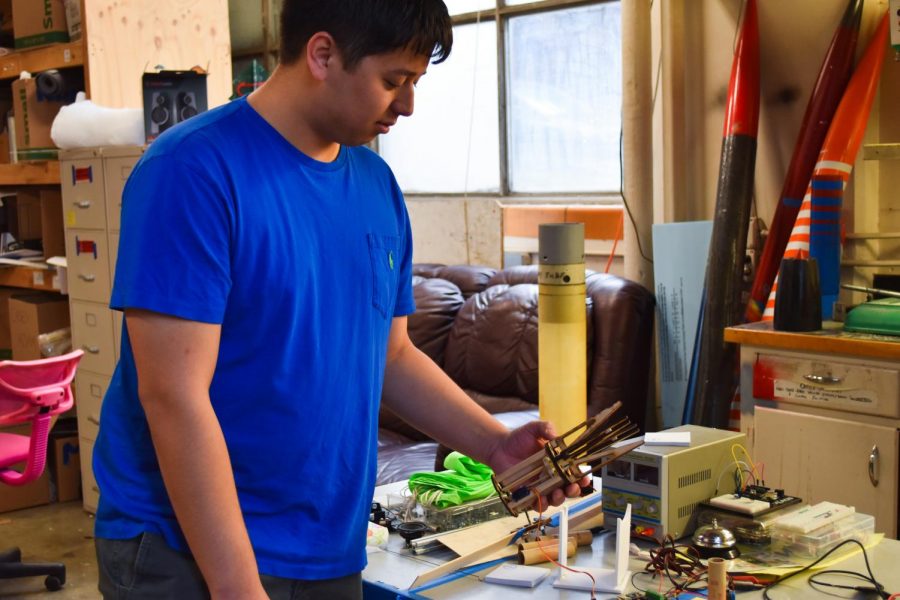Aerospace Club builds rocket for international competition
Projectile must carry 10 pounds, reach 10,000 feet to earn high points
HANNAH WELZBACKER | THE DAILY EVERGREEN
Bryson Jaipean, WSU Aerospace Club Vice President, holds part of a rocket designed to go 10,000 feet in the air. The rocker is in the construction process.
April 3, 2019
The WSU Aerospace Club is building a rocket to compete in the third annual Spaceport America Cup in New Mexico.
Club Vice President Bryson Jaipean, a junior mechanical engineering student, is also the vice-lead of the rocket team. He said the competition is highly competitive, as entries come from all over the world.
Jaipean said the competition requires the rocket to carry a 10-pound payload. The team earns points for how close the rocket gets to the goal, which is 10,000 feet above ground level.
WSU’s team has competed in the past. However, Jaipean said this year they have a more ambitious goal.
“This year we are planning on the rocket overshooting the height and having an air brake, which will react to the different forces and be able to tell where it is in its path and slow down accordingly,” Jaipean said.
He said the Aerospace Club has had the best member turnout in the past two years, giving them a dedicated group that works on the project all hours of the day.
The team is in the construction phase. The cup takes place June 18 through June 22.
Jaipean said funds for the rocket came from donations, school money and fundraising. Jacob Leachman, the team’s adviser and an associate professor in the School of Mechanical and Materials Engineering, has also reached out to different companies for sponsorship.
The rocket will be almost 10 feet in length and reach 10,000 feet in approximately five seconds, Jaipean said. The motor is a commercially bought L2200.
This rocket will go almost Mach speed, Jaipean said, which is a unit of measurement based on the speed of sound.
One mach in room temperature is equal to about 770 mph, for example.
Jaipean said the first full-scale practice launch will be the weekend before finals week.
Aerospace Club President Casey Doan, a computer engineering senior, said she wants to acknowledge the team’s dedication.
“There are some people on this team who spend over 100 hours on campus a week,” Doan said.
Teams will travel to the competition from all over, including countries like Greece, India, Switzerland and South Korea.
Jaipean said this competition is important because the team gets real engineering experience and is able to represent WSU at a worldwide competition.









